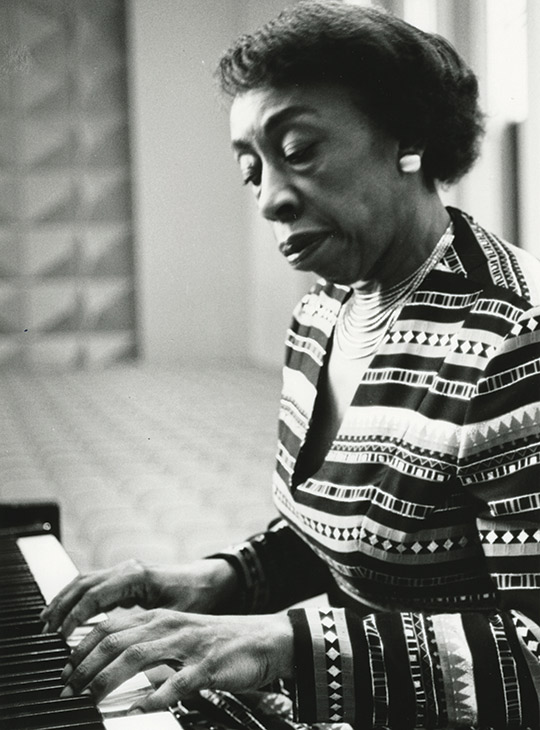Alumni Focus: The Art Of Overcoming
Music inspired pianist and music educator Frances Walker-Slocum to persevere in the face of racial prejudice
“The arts build moral strength and all kinds of inner strength,” says Frances Walker-Slocum (M.A. ’52, Ph.D. ’72).
The 90-year-old Walker-Slocum, a pioneering black classical pianist and music educator, has needed plenty of both.
Injured in a fire at age five, Walker-Slocum learned to play the piano only because her mother forced her to take lessons, but her brother George, who in 1996 became the first black classical composer to win a Pulitzer Prize for Music, always encouraged her.
Walker-Slocum attended Oberlin College Conservatory of Music, which despite being the first conservatory in the country to admit black students still reflected many of the prejudices of the day.
She met her future husband Chet Slocum, who was white, while teaching at Tougaloo College in Mississippi — a state that prohibited interracial marriage and posed such a hostile environment that the couple ultimately fled to New York City. The marriage also so displeased Walker-Slocum’s father, a physician, that he refused to support her continuing education at TC. She completed her degree only after faculty member Raymond Burrows, chair of the scholarship committee, awarded her the $500 Adelaide M. Ayers Fellowship.
“It was at Teachers College, at Columbia, where I found myself, where I gained self-esteem,” she says. She particularly credits Professor Charles Walton for helping her to master music theory, which gave her an edge when it came to securing teaching opportunities.
The turning point in Walker-Slocum’s career came in 1975, when she was commissioned to assemble a program of piano music written by black American composers and perform it at the Kennedy Center in Washington, D.C. and Carnegie Hall. The latter performance for the Bicentennial, which she calls the most memorable of her career, moved audience members to tears and a standing ovation and received a glowing review in The New York Times. Oberlin subsequently invited her to return as the college’s first tenured black female professor. She taught until her retirement in 1991.
While Walker-Slocum has stopped playing the piano because of her health, she has added “author” to her list of many accomplishments, publishing the memoir A Miraculous Journey in 2006. In a world she finds increasingly materialistic, the book is her message to younger generations that a life premised on cherishing the arts is not only still possible but essential.
As a member of TC’s Grace Dodge Society, Walker-Slocum expresses that same message by helping students in need. “Giving is what my life is about now,” she says. “I’m giving back what was given to me.”
—Kelsey Rogalewicz
Published Friday, May. 30, 2014
